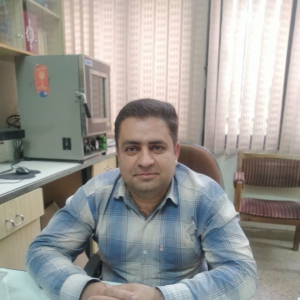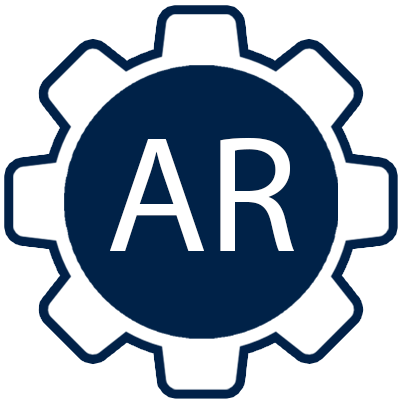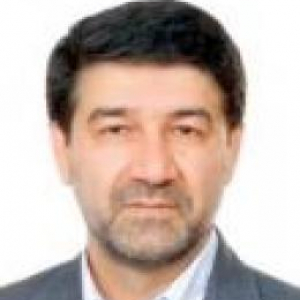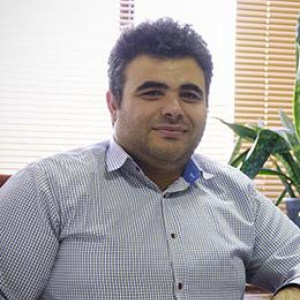Animal science
Department Overview
Animal Science Department was established in the early 1980s at Isfahan University of Technology to train the students so that they could properly manage livestock and poultry farms and improve practice in animal sciences. This department has aimed to increase the quality in all aspects of animal sciences. Our mission is to expand and transfer knowledge for continuous improvement of the animal husbandry and to support human population with sufficient safe products such as egg, milk, white and red meats, etc. Our academic members are teaching and researching in different fields of Animal Science including Animal Nutrition and Metabolism, Feed Evaluating System, Animal Physiology and endocrinology, Animal Embryology, Farm Management Systems, Animal Immunology, Genetics and Animal Breeding, Animal Biotechnology, and Bioinformatics. Our department is supported with advanced research laboratories and specialized facilities to support research studies and graduate students' thesis and dissertations, as well as offering services to the industry.
Academic Programs
Our Department provides academic programs for the degree of Bachelor of Science (B.Sc.) in Animal Sciences. It also offers graduate studies leading to the degrees of Master of Science (M.Sc.) in Ruminant and Poultry Nutrition, Animal Physiology, Animal Breeding and Animal Biotechnology. Besides, we have Ph.D. programs in Ruminant and Monogastric Nutrition, Animal Breeding and Genetics, and Animal Physiology.
Undergraduate
The Department of Animal Sciences offers a program at the undergraduate level too. This program is designed for students preparing themselves for professional careers in animal or poultry farms and animal feed factories, and also for those seeking further graduate training in Animal Sciences. Undergraduate students must pass 55 credit hours of basic courses, 64 credit hours of obligatory courses, and 21 credit hours of elective courses (140 credits in total) to qualify for the Degree of B.Sc. in Animal Sciences.
Graduate
The Department of Animal Sciences offers programs for the degrees in Master of Science and Doctor of Philosophy. The graduate programs attract students in different fields such as Animal Nutrition (Ruminant and Poultry Nutrition), Animal Breeding and Biotechnology, Animal Physiology. Students must pass 32 and 40 (including thesis or dissertation) course credits for M.Sc. and Ph.D., respectively. Graduate students must conduct an original research study for their thesis or dissertation, and defend their findings in an oral presentation.
Admitted students
We accept international students in the coming semesters for both M.Sc. and Ph.D. programs. Admission to our graduate program will be highly competitive. Students are to contact initially with their master of interest for vacancy position. The minimum criteria for admission can be found in Admission Requirement for IUT. Applicants should hold at least a B.Sc. degree or its equivalent in Animal or Biological Sciences from a credible institution. Beyond these minimum requirements, the admission committee looks for intellectual potential by reviewing the previous performance in university coursework. If the applicant has published papers, attachment of one or two of these and a description of their impact are encouraged. The candidate's statement should include a description of the research interests as well as their motivation for pursuing graduate education.
Transfer students
Department of Animal Sciences at Isfahan University of Technology accepts transferring students for joint projects or sabbatical programs.
Research
Research Fields
The research initiatives carried out in IUT Department of Animal Sciences cover a range of topics including:
- Ruminant Nutrition
- Poultry Nutrition
- Animal Physiology and Biotechnology
- Animal Breeding and Genetics
Ruminant Nutrition
- Nutritional Evaluation of Feedstuffs
- Application new techniques for the determination of chemical composition of forage and concentrate.
- Application of in vivo, in situ and in vitro methods for ruminal and post-ruminal digestibility of common and new feedstuff.
- Ruminal degradability of forage and concentrate.
- Effects of TMR rations and different ratios of forage to concentrate on rumination, chewing activity and ruminal parameters of dairy cattle.
- Determination of the passage rate and digestion kinetics of feeds in ruminants.
Feed Processing
- Applying different methods along with additives for forage silages.
- Grinding, eradiation, heating, steam rolling, and flaking of cereal and oil seeds.
Dairy Cattle Metabolism and Milk Production
- Application of feed additives for improving ruminal fermentation rate and increasing the quality and quantity of milk production.
- Feed processing to change the ruminal parameters, hepatic metabolism, and save energy.
- The relationship between ruminal parameters, blood metabolites, milk production and milk quality.
- Alterations of ruminal bacterial, protozoa and fungi populations in response to different rations.
- Application of the protected amino acids and trace minerals for improving milk production and the immune system.
Sheep Metabolism
- The effect of different forages and concentrates on ruminal parameters, blood metabolites, growth rate, and meat quality.
- Compensatory growth rate of lambs.
- Hormonal evaluation in response to nutrition.
Weaning Age of Calves
- Feed additives and essential oils for reducing the weaning age.
- The use of management methods to enhance growth, health, ruminal microbial flora and fermentation.
Poultry Nutrition
Nutrition and Metabolism
- Interactive effects of macro- and micro-nutrients on the performance and blood metabolites in broiler chicks and laying hens.
- Nutritional requirements of different poultry species using in vivo methods and modeling.
- Proximate analysis of feed ingredients and measurement of their nutritional value by in vitro and in vivo methods.
- Application of by-products in poultry nutrition.
- Digestibility experiments: evaluation of ideal and total tract digestibilities of feedstuffs.
- Strategies for feed restriction in broiler and breeder farms.
- Optimization of poultry resistance to metabolic and digestive disorders.
- Ideal protein and amino acid profile.
Poultry Immunology
- Nutritional immunity.
- Nutritional requirements of different nutrients (particularly micronutrients) for optimum immunological responses.
- Mycotoxins and immunity.
Poultry Physiology and Biotechnology
- Reproductive performance of poultry breeders in response to nutritional and environmental modifications.
- Mycotoxins and morphological and histological alterations in liver, kidney and ovary.
- Nutritional modifications for the regulation of key metabolic genes.
Poultry management
- Bioenvironmental concerns related to poultry farm manure.
- Strategies for controlling mineral excretions in poultry manure.
- Poultry behavior in response to environmental alterations.
- Factors affecting the quality and stability of poultry products.
Animal Physiology and Biotechnology
Reproductive Physiology
- Understanding the effects of heat and cold stress on the reproductive performance of sheep, goat and cattle.
- Evaluating the immune system and the reproductive response of ruminants and nonruminants to dietary modifications.
- Probing the effect of feed additives and vitamin & mineral supplements on follicular dynamic and hormonal changes.
- Addressing the effect of unsaturated fatty acids on the reproductive performance of sheep and cattle.
- Investigating the effect of anti-nutritional factors on the health, hepatic enzymes, and the reproductive performance of sheep and cattle.
Gene Expression and Immune Responses
- Evaluation of gene expression and its relation with different physiological circumstances.
- Investigation of mRNA expression in response to different nutrients such as fatty acids, amino acids and minerals.
- On or off status of different genes, particularly in the immune and metabolic system.
- Activation of the gene in vitro or in vivo, with the programming of the cell and its controlling for physiological or pharmacological purposes.
Animal Breeding and Genetics
This section aims to provide new methods and strategies to improve livestock production, dairy and beef cattle, sheep, poultry (meat-type, egg-type and local birds) and honey bee. Some important topics can be pursued by students interested in genetics and biotechnology.
Quantitative genetics
- Improving economical traits (production, reproductive performance and survival traits).
- Developing the methods to evaluate and subsequently, streamline the research in livestock breeding to study the problems limiting genetic improvement.
- Studying the effect of genetic factors on the functioning of farm animals and optimum breeding schemes for selection.
- Conducting genetic analyses of commercial populations to get insight into the impact of both genetic and environmental sources on the economic traits.
- Addressing genetic variation and genetic correlations between the traits.
Genomics and molecular genetics
- Identification of candidate genes involved in livestock using new techniques.
- Bovine gene mapping and DNA sequencing.
- The study of the candidate genes and genetic variation in the quantitative traits.
- Methods and experimental designs for the detection of important QTL in farm animals for practical breeding programs.
- The use of different biometric approaches for the genetic ranking of breeding animals, including new tools, e.g. DNA information.
- The use of statistical genetic methods to evaluate candidate animals based on genetic models.
- Identification and development of PCR-based molecular markers linked to the improvement of genetic resistance to important diseases, e.g. mastitis.
- Bioinformatic methods for the integrated analysis of genomic, transcriptomic, proteomic, metabolomic, and phenotypic information.
- Diversity and conservation genetics studies of local breeds using morphological characters and DNA markers.

- 031-33913514

- 031-33913315

- 031-33913513












